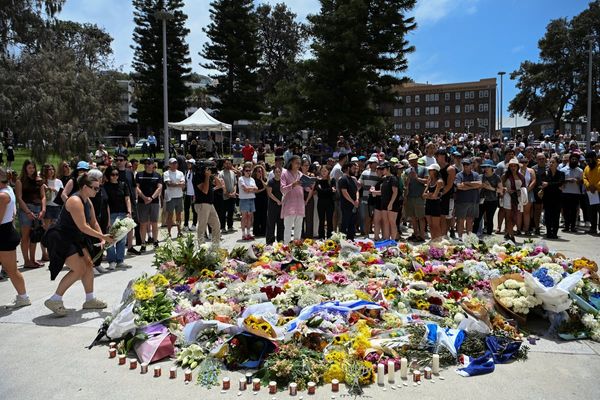There's been a lot of talk this week that the way we see GPs is about to change.
Tuesday's federal budget included a $5.7 billion boost for general practice, the centrepiece of which was tripling the incentive paid to doctors who bulk-bill certain patients.
The government says the measure will benefit more than 11 million people who have a Medicare card.
However that's not all the budget had in store for primary health care, so let's take a look at everything that's been announced and what it could mean for you and your health.
Will my GP bulk-bill me?
It depends.
First, bulk-billing is when the consultation fee charged by a GP is the same as the benefit Medicare pays them to provide the service — meaning the patient pays nothing out of pocket.
You can read more about that here.
Tasmanian GP Eleanor Woolveridge, who co-owns the Sorell Family Practice, north east of Hobart, says bulk-billing is a vital service for the most vulnerable members of her community.
"Bulk-billing means that some of our patients can see a doctor, and these are the patients who really live on the fringe and live day to day and week to week," she said.
"Or [they could be] the patients who have significant multiple chronic health issues and need to see the GP every two weeks to stay out of hospital or every month to get higher complicated prescriptions."
The government has flagged it will increase the amount of money it pays a GP to bulk-bill patients who fit into one of the following categories: under the age of 16, pensioners, or those who have a concession card.
How much the GP is paid will depend on their location, with those in remote areas to get the most. Essentially, the government says it is tripling the incentive it pays a GP to deliver free healthcare to a patient.
That's important because it has become way more expensive than it used to be for a GP to see a patient.
Clinics not only have to compete with other clinics to attract and retain doctors and other practice staff, they also need to pay a lot of money in rent, electricity, medical supplies, registrations, training, and insurance, and, as technology improves, they are also paying a lot to ensure their IT systems are relevant and secure. All of that adds up.
The amount of money a GP gets from the government to see patients has not kept up with those growing costs.
The added incentive will help close that gap but is still well below the consultation rates recommended by the Australian Medical Association.
It means some GPs will still take a financial hit if they bulk-bill patients and not all will be able to afford to do so.
"For colleagues who have different models of practices [to mine], I fully understand why they're very disappointed," Dr Woolveridge said.
"It's better than nothing, basically, is the way I look at it."
When speaking to the ABC, Health Minister Mark Butler was a little more critical of GPs who don't provide free healthcare.
"You can always find some who'll make a business decision not to bulk-bill, and I hope that their patients shop around and find a practice that will bulk-bill," he told RN Breakfast.
He also said that when fewer GP clinics bulk-bill, hospitals typically see more presentations to their emergency departments, adding more pressure to those systems.
What else has been announced?
There were a few other measures in the budget that might change the way you see GPs:
A new scheme (kind of)
Time and money were set aside in the budget for a scheme called MyMedicare.
It is voluntary and asks patients to register with their preferred practice and GP. There will also be additional funding to support multidisciplinary 'wrap around' services to those patients, and for general practices that provide tailored care to patients who frequently use hospitals.
There's a lot of speculation about how it will work but not much detail. We'll let you know when that changes.
Cheaper medicines
We already knew about this one. Phased in slowly from September, you'll be able to get double the amount of certain prescription medications at no extra cost.
Your script will also last longer, meaning fewer trips to the GP.
More money for complex consultations
From November, there will be a new Medicare rebate to allow for consultations up to an hour. The rebate will be around $180 and will benefit patients who have chronic health conditions or need mental health support.
Again, this will be part of MyMedicare.
Telehealth is being funded for up to 40 minutes
There is some money for this, including $5.9 million for longer telehealth consultations from November.
More Medicare Urgent Care Clinics are coming
The government plans to set aside $358 million over five years to support Medicare Urgent Care Clinics. As well as continuing funding for the 50 clinics already announced, it will allow for the creation of eight new ones.
Urgent care clinics deal with cases that are urgent but not life-threatening and are designed to take pressure off stretched hospital emergency departments.
So, does all this mean I'll be able to see a GP faster?
Not right away.
Australia needs more GPs. Until we have more, you'll still find it difficult to get into a doctor quickly.
While building a workforce is no easy feat, the government has included a few measures to try and do it by making it a more attractive specialty.
That will take time. But things are looking more positive and doctors are pretty excited about some of these changes.
There are also financial lures on the table to try and encourage clinics to open after hours.
The government has also set aside $445 million to encourage multidisciplinary healthcare.That's where allied health workers, like nurse practitioners, work alongside GPs to deliver some of the more standardised care so GPs have more time to spend on complex cases.
The president of the Royal Australian College of General Practitioners (RACGP), Dr Nicole Higgins was a fan of the budget.
"This will make a real difference for all Australians and is what the RACGP has been working with government to secure for a long time," she said.







